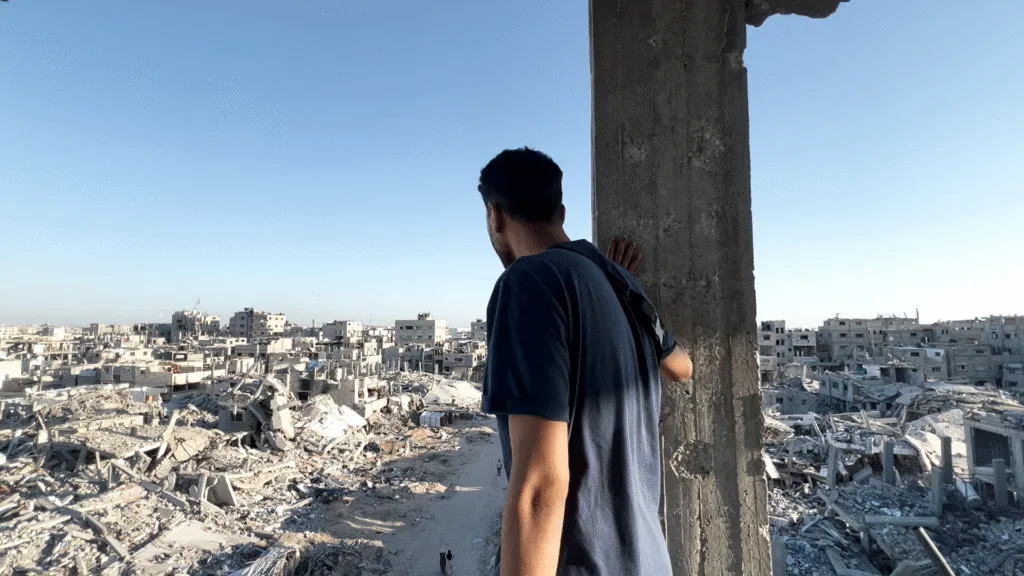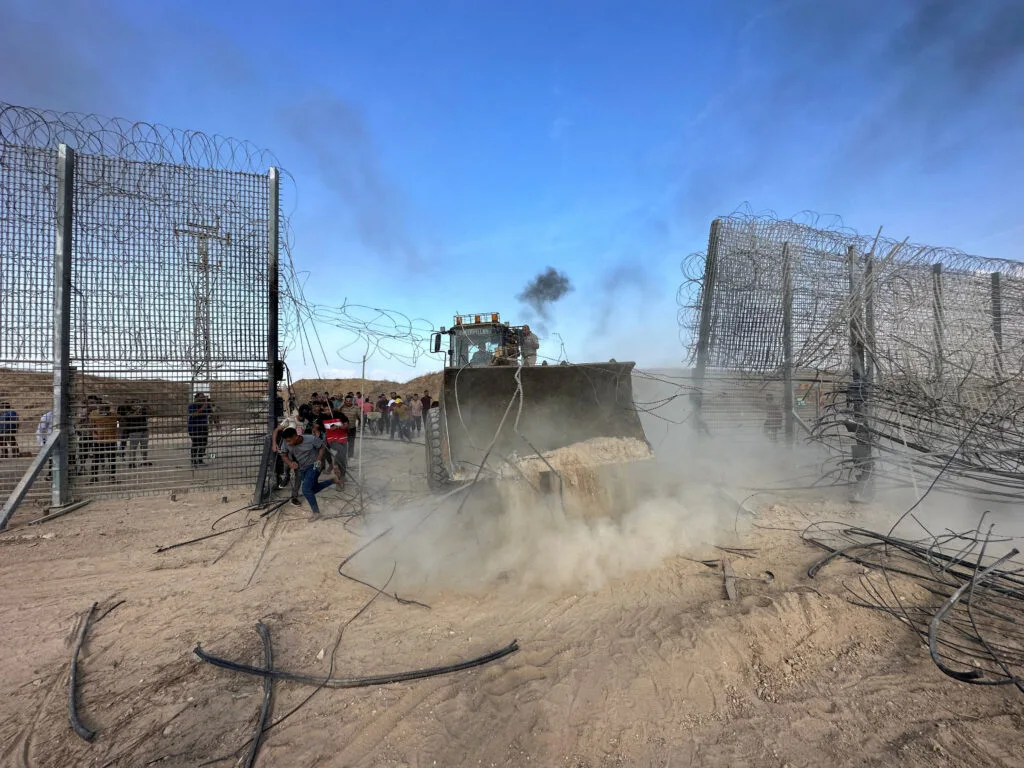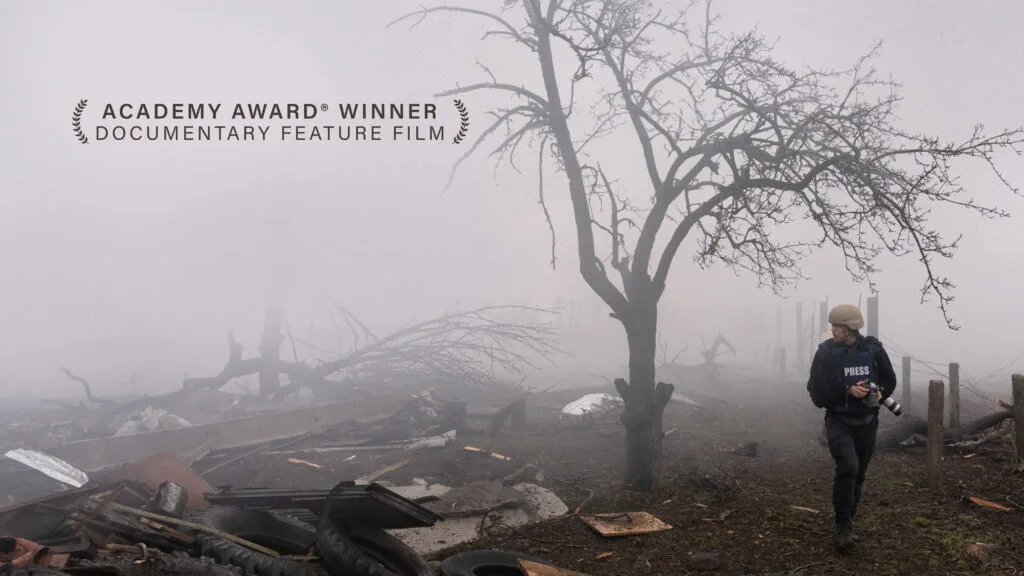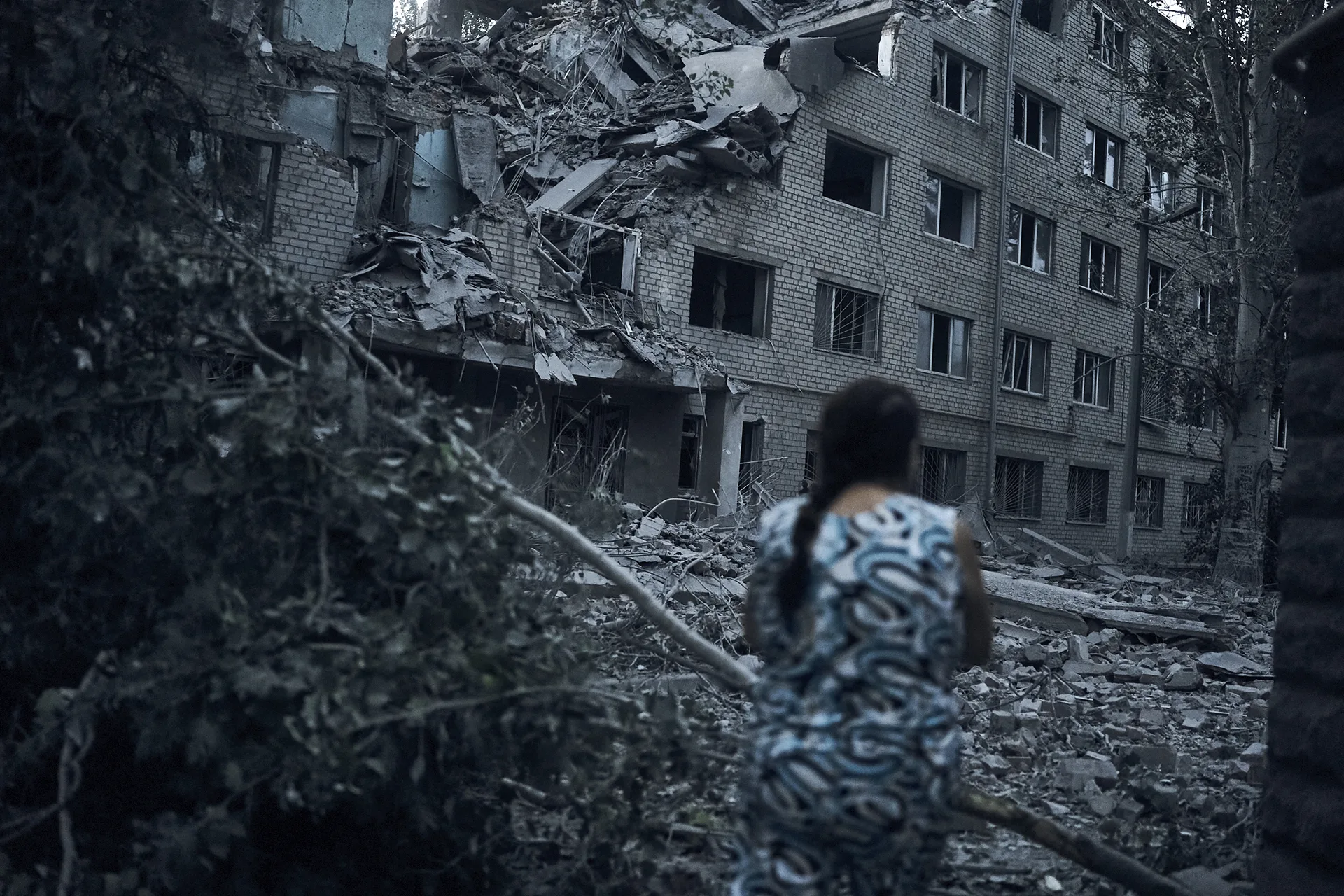Attack on Ukraine Train System May Be War Crime, Experts Say
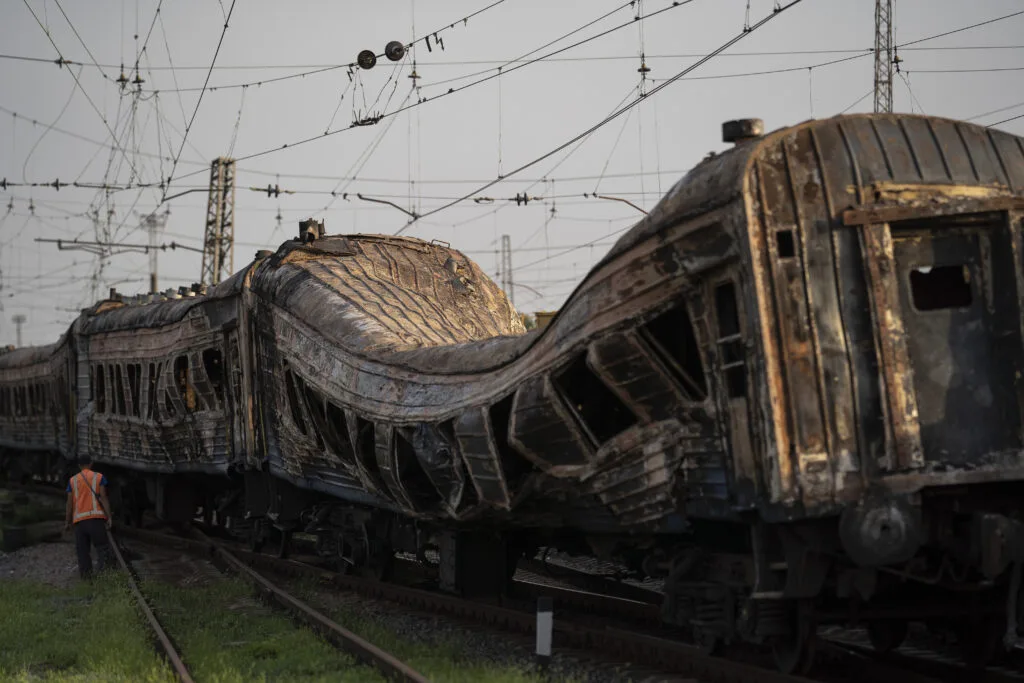
August 26, 2022
Share
Russia’s attack on a train station in Ukraine that killed more than 20 people Wednesday is the latest in a series of strikes on the country’s railway system that some international legal scholars say may be war crimes.
While Russia claimed that it had targeted the train because it was carrying Ukrainian troops and equipment, an AP reporter on the ground said there was no visible indication that Ukrainian troops were among the dead, which included children. If civilians were the target, experts say, the attack could be considered a war crime.
“A train station is generally a civilian object and should not be a target of attack,” said Jennifer Trahan, a clinical professor at NYU Center for Global Affairs.
Wednesday’s attack in Chaplyne, a small village in southeastern Ukraine, was one of the deadliest in months on the country’s extensive railway system. In the nearly six months since Russia invaded Ukraine, The Associated Press and FRONTLINE have independently verified 39 attacks on civilian infrastructure that could be considered war crimes. Three of those hit the country’s railway infrastructure and have been particularly lethal, killing more than 100 civilians. In all three, there was little evidence to back up Moscow’s claims that Ukrainian troops were the true aim.
The deadly strike Wednesday came as Ukrainians were defiantly celebrating their Independence Day while remaining on high alert because of threats that Russia would use the occasion to mount attacks.
This story is part of an ongoing investigation from The Associated Press and FRONTLINE that includes the War Crimes Watch Ukraine interactive experience and an upcoming documentary.
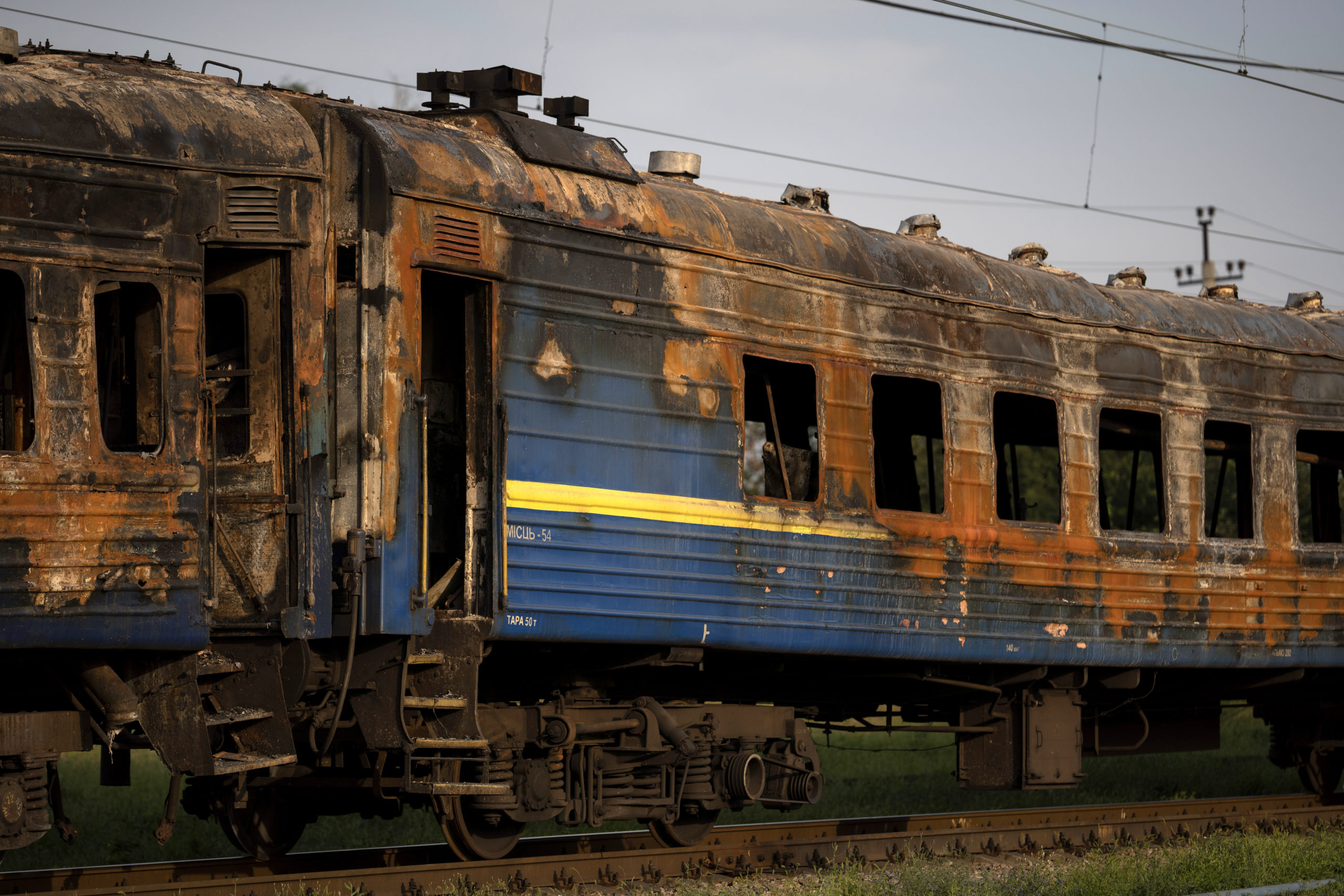
More than 50 people, including children, were on their way to flee Donbas when they were killed in a Russian attack on a train station in Kramatorsk back in April. Photos from the aftermath showed dead bodies and abandoned luggage strewn around the station. Rail cars were crushed and hollowed out by fire.
The deputy head of the Ukrainian presidential office, Kyrylo Tymoshenko, said Thursday that as a result of the shelling of the train station and residential area 25 people were killed. He added that an 11-year-old boy died under the rubble of a nearby house and a 6-year-old died in a car fire by the station.
Tetyana Kvitnytska, deputy head of the Dnipropetrovsk regional health department, told the AP that those in Wednesday’s attack had suffered head injuries, broken limbs, burns and shrapnel wounds.
“There is no such war crime that the Russian occupiers have not yet committed on the territory of Ukraine,” Ukrainian President Volodymyr Zelenskyy said.
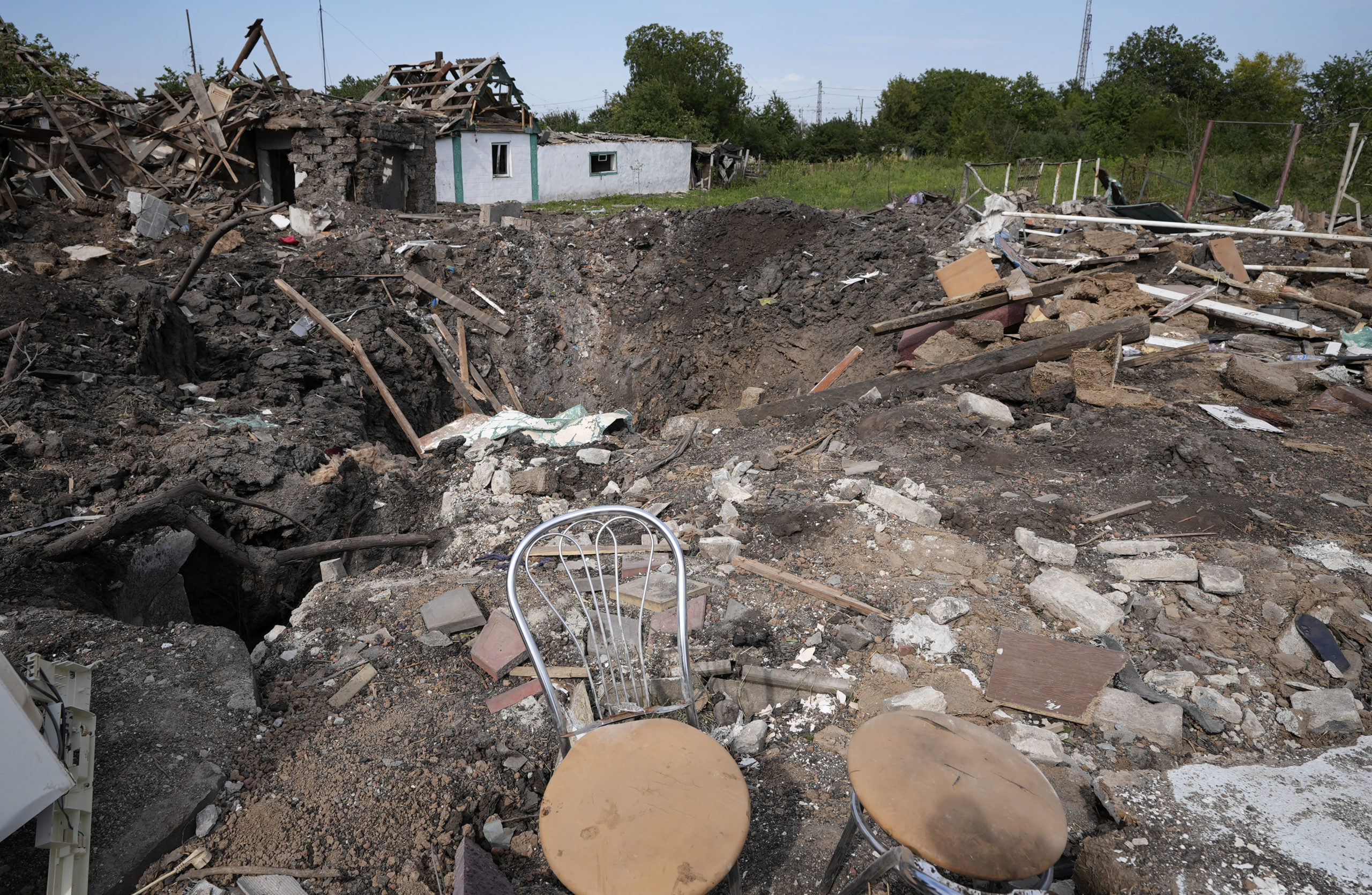
Russia’s Defense Ministry said that an Iskander missile was used to carry out the attack and that 200 reservists “were destroyed on their way to the combat zone.” An AP reporter who went to the scene said no Ukrainian troops were visible among the dead.
Even if some members of the military were among the dead, the attack could still violate the laws of war if it disproportionately harmed civilians.
“If you’re going to kill a small number of troops as opposed to a large number of civilians, that’s a war crime,” said Michael Newton, a professor of law at Vanderbilt Law School and director of the international legal studies program.
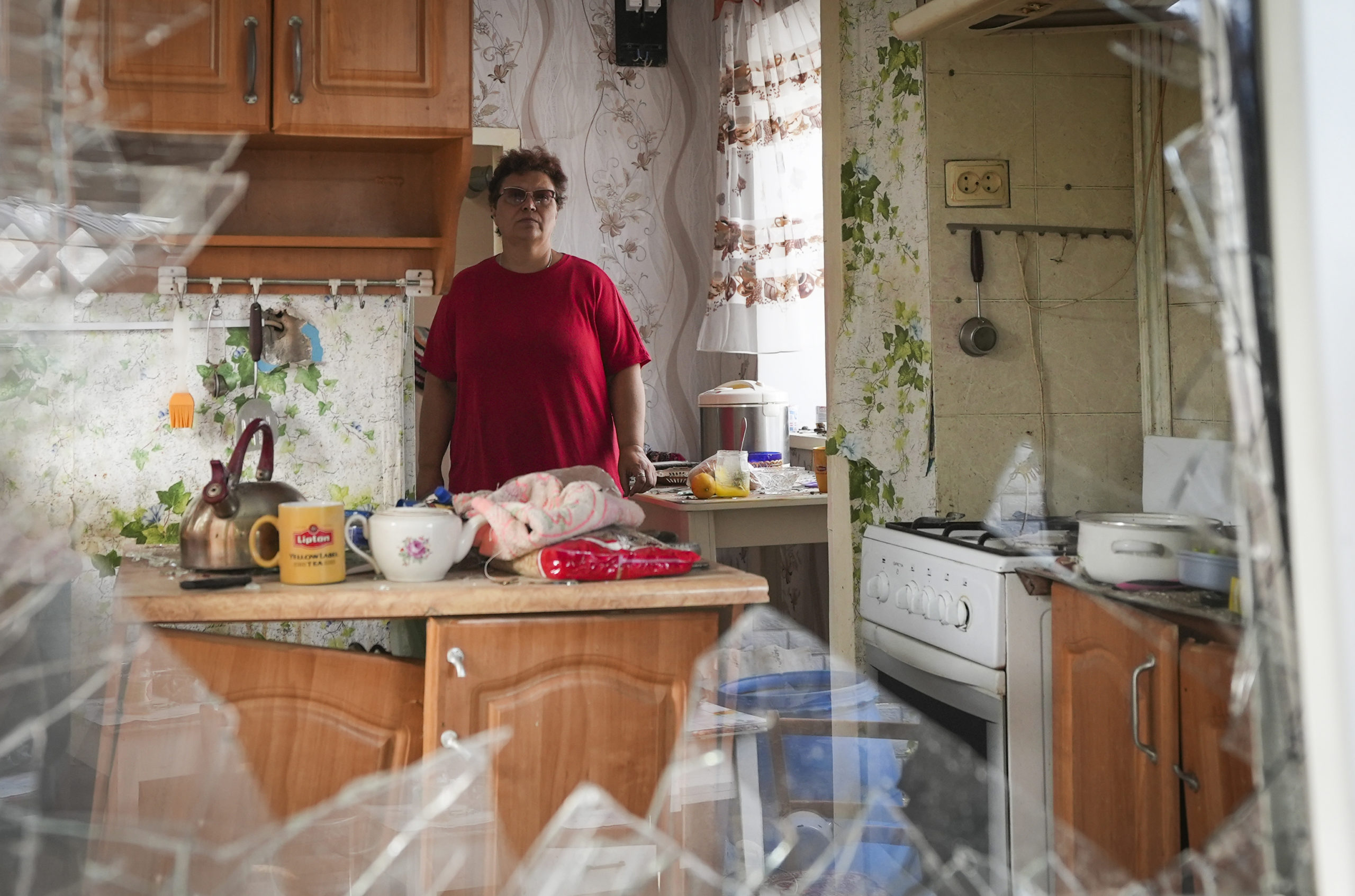
Iskander missiles are expensive precision-guided missiles and are not used for trivial missions, said Frank Ledwidge, visiting fellow at the Transatlantic Dialogue Center in Kyiv and a former British military intelligence officer.
“The takeaway is a deliberate strike on a civilian target to cause civilian casualties for the purpose of disrupting rail traffic of civilians throughout Ukraine,” he said.
In May, Russia used sea-and-air-launched precision missiles to strike power facilities at five railway stations, mostly in Lviv, after claiming that the west was using the rail lines to deliver weapons to Ukraine.
Related Documentaries
Latest Documentaries
Related Stories
Related Stories
Explore
Policies
Teacher Center
Funding for FRONTLINE is provided through the support of PBS viewers and by the Corporation for Public Broadcasting, with major support from Ford Foundation. Additional funding is provided the Abrams Foundation, Park Foundation, John D. and Catherine T. MacArthur Foundation, Heising-Simons Foundation, and the FRONTLINE Trust, with major support from Jon and Jo Ann Hagler on behalf of the Jon L. Hagler Foundation, and additional support from Koo and Patricia Yuen. FRONTLINE is a registered trademark of WGBH Educational Foundation. Web Site Copyright ©1995-2025 WGBH Educational Foundation. PBS is a 501(c)(3) not-for-profit organization.





